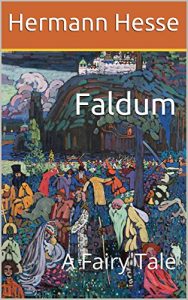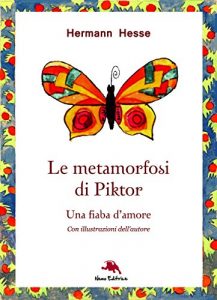"Although life is an affair of light and shadows, we never accept it as such. We are always reaching towards the light and the high peaks." Hermann Hesse
Faldum is a short fairy tale written by Hermann Hesse, author of Siddhartha and Steppenwolf. In the fairy tale, Hesse describes Faldum, a small well-off country where people felt satisfied and content as long as they prospered along with everybody else.
At the time of the annual fair, Faldum gets an unexpected visit from a wanderer who offers to grant a wish to everyone in Faldum. Interesting to see the wishes that people would make when they know that their wish would be granted.
A young musician wished only to have space to perfect his art without ever being disturbed and a friend of his wished to turn into a mountain as big as the countryside of Faldum and so tall that its summit would tower above the clouds.
Life in Faldum is never the same. Time goes on. Customs change. People are born and pass on. Eventually the people and the village vanish altogether, and all that’s left is the peaceful, noble, living mountain.
Observing the human community within the context of time and in philosophical perspective, Hesse was prepared to acknowledge that any society, including ours, will ultimately disappear in the indifference of the universe.
The story offers an exercise in spiritual detachment and allows its reader to gain perspective, and understanding, of what’s really important in life. Faldum was written in 1916, during world war one, and was published in Hesse's Fairy Tales collection “Märchen” under the title “Das Märchen von Faldum.”
Faldum is a short fairy tale written by Hermann Hesse, author of Siddhartha and Steppenwolf. In the fairy tale, Hesse describes Faldum, a small well-off country where people felt satisfied and content as long as they prospered along with everybody else.
At the time of the annual fair, Faldum gets an unexpected visit from a wanderer who offers to grant a wish to everyone in Faldum. Interesting to see the wishes that people would make when they know that their wish would be granted.
A young musician wished only to have space to perfect his art without ever being disturbed and a friend of his wished to turn into a mountain as big as the countryside of Faldum and so tall that its summit would tower above the clouds.
Life in Faldum is never the same. Time goes on. Customs change. People are born and pass on. Eventually the people and the village vanish altogether, and all that’s left is the peaceful, noble, living mountain.
Observing the human community within the context of time and in philosophical perspective, Hesse was prepared to acknowledge that any society, including ours, will ultimately disappear in the indifference of the universe.
The story offers an exercise in spiritual detachment and allows its reader to gain perspective, and understanding, of what’s really important in life. Faldum was written in 1916, during world war one, and was published in Hesse's Fairy Tales collection “Märchen” under the title “Das Märchen von Faldum.”












